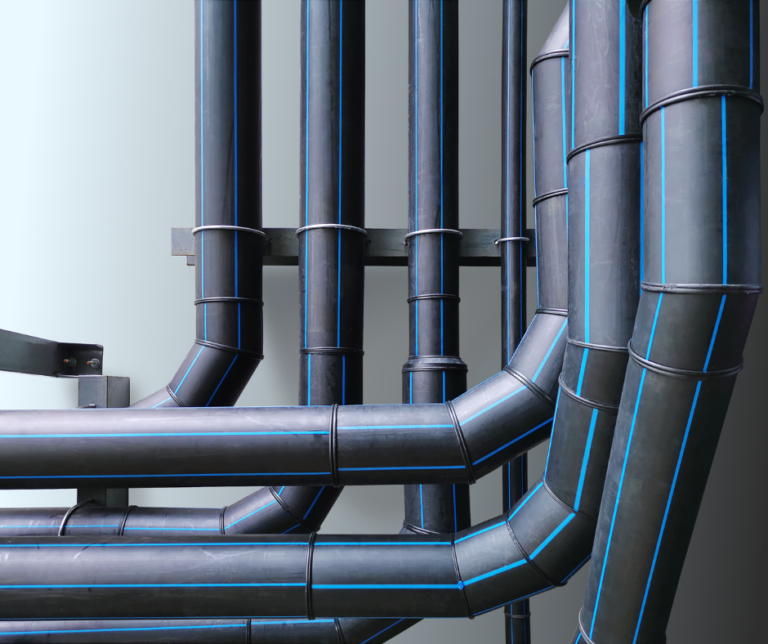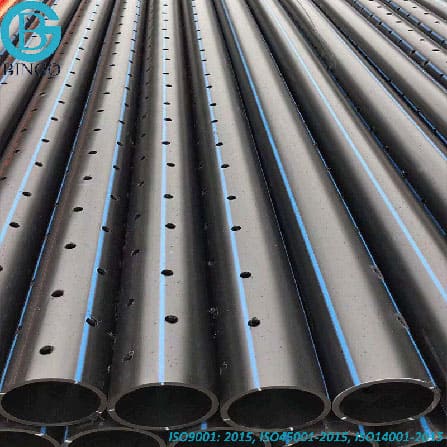Where Contractors Can Get Midland TX HDPE Pipe Fittings in Stock for Construction Projects
A Comprehensive Overview to the Various Uses of HDPE Pipe in Building And Construction and Sector
HDPE pipelines have actually emerged as a crucial component in contemporary construction and industrial applications. Their distinct residential or commercial properties, such as resistance to corrosion and light-weight design, make them appropriate for a large range of uses. From water supply systems to farming irrigation, HDPE pipes use solutions that enhance effectiveness and sustainability. Understanding their varied applications is important for experts wanting to maximize facilities. What details advantages do these pipes give each field?
Water System and Circulation Systems
Water supply and circulation systems are crucial elements of metropolitan framework, frequently depending on high-density polyethylene (HDPE) pipelines for their longevity and effectiveness. These systems transport drinkable water from therapy centers to customers, ensuring accessibility and safety and security. HDPE pipelines are preferred for their resistance to corrosion, chemicals, and severe temperatures, which boosts their long life and minimizes maintenance costs. Additionally, their lightweight nature enables much easier installment and transport, making them ideal for numerous metropolitan and country applications.
The adaptability of HDPE pipes allows them to be mounted in limited spaces and around challenges, reducing the demand for substantial excavation (Pipe Supplier American Plastics Midland). Their smooth interior surface area decreases rubbing losses, boosting water flow rates. As cities remain to expand, the need for trusted water systems increases, placing HDPE pipes as a sustainable solution for modern-day infrastructure tasks. Their tested record makes them a preferred option amongst engineers and city coordinators alike
Wastewater Management and Therapy
Reliable wastewater administration and treatment are vital for maintaining public health and wellness and environmental quality. HDPE pipes play a vital function in this procedure because of their longevity, resistance to corrosion, and capacity to withstand severe chemicals. These pipelines are generally made use of in numerous applications, consisting of sewer system, stormwater drainage, and wastewater treatment facilities. Their light-weight nature assists in less complicated installment and transportation, reducing labor prices and time.
Furthermore, HDPE pipelines have a smooth interior surface area that decreases rubbing loss, advertising reliable circulation prices. They are likewise much less prone to leaks and failures compared to typical products, guaranteeing that impurities are had efficiently. In addition, their versatility enables versatility in numerous dirt conditions, making them ideal for varied ecological setups. As industries increasingly focus on lasting practices, making use of HDPE pipes in wastewater monitoring systems aligns with goals for minimizing environmental effect and improving resource healing.
Agricultural Irrigation Solutions
In farming setups, reliable irrigation solutions are vital for optimizing crop returns and handling water resources. HDPE (High-Density Polyethylene) pipelines play an essential function in contemporary irrigation systems because of their durability, versatility, and resistance to corrosion. Their capability to withstand high pressures makes them perfect for both surface area and subsurface watering applications, making sure uniform water distribution across areas.
Farmers can make use of HDPE pipelines in drip irrigation systems, which provide water straight to plant roots, decreasing waste and promoting healthy and balanced growth. Additionally, these pipes are lightweight and very easy to mount, minimizing labor prices and installment time. Their long life-span and low maintenance needs further improve their appeal in agricultural practices.
HDPE pipelines are environmentally friendly, as they can be recycled and do not seep hazardous chemicals into the soil. This makes them a sustainable selection for farmers intending to embrace environmentally friendly farming methods while making best use of efficiency.
Industrial Applications and Processes
Convenience is a hallmark of HDPE pipes, making them vital in numerous commercial applications and procedures. These pipelines are extensively utilized in chemical handling markets due to their excellent resistance to a knockout post a vast array of destructive materials. HDPE's light-weight nature, incorporated with high tensile toughness, enables very easy setup and lasting performance sought after environments.
In the oil and gas market, HDPE pipes play an important role in delivering hydrocarbons and gases, many thanks to their durability and versatility - Texas hdpe pipe manufacturer. Furthermore, they are utilized in mining procedures for the transportation of slurry and various other products, where typical piping systems might fail
Additionally, HDPE pipelines are increasingly used in manufacturing facilities for water lines and wastewater management. Their capacity to hold up against severe temperature levels and stress makes them appropriate for a selection of commercial processes. Overall, HDPE pipelines contribute substantially to effectiveness and safety and security across diverse commercial applications.
Stormwater Monitoring and Drain Equipments
Stormwater administration and drain systems are crucial elements in metropolitan framework, developed to handle excess rainfall article and lower flooding threats. High-density polyethylene (HDPE) pipes are significantly made use of in these systems as a result of their sturdiness, versatility, and resistance to corrosion. These pipelines efficiently transfer stormwater away from inhabited locations, reducing surface overflow and preventing waterlogging.
HDPE's lightweight nature facilitates less complicated setup, reducing labor costs and construction time. Furthermore, its resistance to chemicals and environmental stress factors guarantees long life and dependability in different climates. Along with conventional drainage applications, HDPE pipelines are also utilized in ingenious solutions such as environment-friendly infrastructure, that includes rain gardens and absorptive sidewalks.

Frequently Asked Inquiries
How Does HDPE Pipeline Compare to PVC Pipe in Cost?
In general, HDPE pipeline tends to be more costly than PVC pipe as a result of its improved durability and flexibility. However, long-lasting expense factors to consider, such as maintenance and life-span, might favor HDPE in certain applications.

What Is the Lifespan of HDPE Pipeline Under Varying Conditions?
HDPE pipelines generally have a life-span of 50 to 100 years, depending upon environmental problems, setup techniques, and usage. Variables such as temperature, dirt type, and exposure to chemicals can substantially affect their longevity.
Can HDPE Pipeline Be Recycled After Usage?
Yes, HDPE pipelines can be recycled after use. The recycling process involves thawing down the product, permitting it to be repurposed right into new products, thereby promoting sustainability and minimizing environmental impact related to plastic waste.
Exist Any Type Of Details Setup Challenges With HDPE Pipelines?
Setup obstacles with HDPE pipes consist of appropriate jointing strategies, guaranteeing ample trench conditions, Homepage and taking care of thermal growth. Furthermore, proficient labor is required to deal with specific equipment, which can make complex the installation process in numerous environments.

What Accreditations Should I Seek When Buying HDPE Pipelines?
When acquiring HDPE pipes, one ought to try to find qualifications such as ASTM, AASHTO, and ISO, which verify high quality and conformity with industry requirements, ensuring sturdiness and efficiency in various applications. - Texas hdpe pipe manufacturer